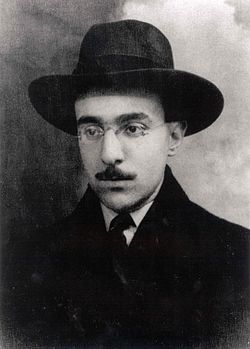Fernando Pessoa Quote
Related Quotes
The 10 ever greatest misplacements in life:1. Leadership without character.2. Followership without servant-being.3. Brotherhood without integrity.4. Affluence without wisdom.5. Authority without consc...
Israelmore Ayivor
Tags:
affluence, authority, brotherhood, change, change your life, character, characters, conscience, extra, extra mile
A young child is a leader to an elderly person once his purpose has a faithful, sincere and trustworthy influence on people. Leadership is not restricted to position and age; it is self-made and influ...
Israelmore Ayivor
Tags:
a child, a young child, age, appoint, appointed, appointment, child, children, commander, elder
You can lead if you can serve. You can serve when you can love. You can love when you are graced. The truth is that God knows love will be needed in volumes, this is why he made his grace abundant. Le...
Israelmore Ayivor
Tags:
abundance, abundant, attitude, ballot, ballot paper, ballot papers, character, characters, clinton, election
About Fernando Pessoa
Fernando António Nogueira de Seabra Pessoa (; Portuguese: [fɨɾˈnɐ̃du pɨˈsoɐ]; 13 June 1888 – 30 November 1935) was a Portuguese poet, writer, literary critic, translator, and publisher. He has been described as one of the most significant literary figures of the 20th century and one of the greatest poets in the Portuguese language. He also wrote in and translated from English and French.
Pessoa was a prolific writer both in his own name and approximately seventy-five other names, of which three stand out: Alberto Caeiro, Álvaro de Campos, and Ricardo Reis. He did not define these as pseudonyms because he felt that this did not capture their true independent intellectual life and instead called them heteronyms, a term he invented. These imaginary figures sometimes held unpopular or extreme views.
Pessoa was a prolific writer both in his own name and approximately seventy-five other names, of which three stand out: Alberto Caeiro, Álvaro de Campos, and Ricardo Reis. He did not define these as pseudonyms because he felt that this did not capture their true independent intellectual life and instead called them heteronyms, a term he invented. These imaginary figures sometimes held unpopular or extreme views.
